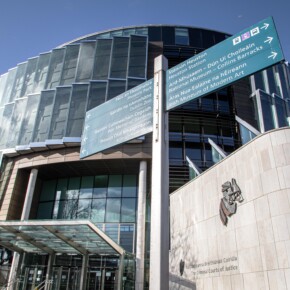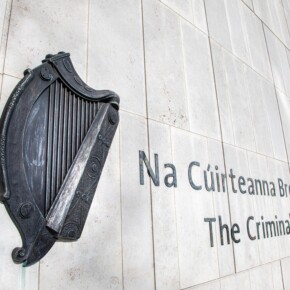Concern at numbers turning to moneylenders
Dublin People 08 Nov 2013
A SOUTHSIDE TD has expressed grave concern at new figures showing a rise in the numbers of people turning to registered moneylenders for loans.
Deputy Catherine Byrne (FG), who represents Dublin South Central, made her comments as the Central Bank published a report on the licensed moneylending industry.
The findings of the report, which was conducted by Amarach Research of behalf of the Central Bank, were published last Friday. It concluded that the licensed moneylending sector had not changed significantly since the Central Bank published its report on the industry in 2007.
The report revealed that the number of licensed moneylenders operating in Ireland has declined from 47 to 43 during this period. However, customer numbers have increased from 300,000 to 360,000 since 2005. There was e200m outstanding in moneylenders’ loans at the time the research was carried out. The comparative figure for 2007 was e124m.
The report also found that the most common loan amount is in the e200-e500 range. The most frequent term offered is nine months, with an APR of 125 per cent.
Customers typically use loans from moneylenders to purchase goods (30 per cent) or for family events (23 per cent), while nine per cent borrowed to pay bills or other debts.
Of those surveyed, 77 per cent said they had been refused loans from a credit union or a bank, even though more than half also had savings with these institutions.
A significant proportion of customers surveyed (25 per cent) had experienced difficulties in making repayments in the past 18 months. Of these, 63 per cent reported that repayment problems were caused by a drop in household income.
But according to the report, the majority of customers reported a high level of satisfaction with their moneylender, citing ease of availability and convenience as the main reasons.
A majority of 89 per cent also knew the cost of credit on their loan, while 69 per cent understood the amount of interest charged.
Commenting on the findings of the research, Bernard Sheridan, director of consumer protection at the Central Bank, said:
“Loans from moneylenders can be very expensive, especially when used on an ongoing basis. While there are some positive findings in relation to how licensed moneylenders are treating their customers and also in the increasing level of awareness of the costs of such loans, the Central Bank will continue to monitor this sector closely and take action where necessary to protect borrowers’ interests.
?
Mr Sheridan encouraged consumers who were struggling with repayments on loans to seek advice from MABS.
Meanwhile, Deputy Catherine Byrne said while the figures were of grave concern to her, they should probably come as no surprise.
“The continued presence of high interest moneylenders in this country has led more and more people to turn to their services for financial assistance in times of hardship,
? she said.
“In the run up to Christmas, it is likely that additional people will resort to accepting the exorbitant interest rates charged by moneylenders, which can lead to debts spiralling out of control.
?
Deputy Byrne believes that many of those who use moneylenders may not have bank accounts and feel like they have no other option to get some extra cash.
“The figures indicate that there has been a fall in the number of licensed moneylenders operating here,
? she added.
“But no figures are available for the number of people using illegal moneylenders so the true scale of the problem is difficult to estimate.
“We can’t ignore the fact that this problem is increasing. Those most likely to turn to moneylenders are low-income families who are already on the margins and feel they have no prospect of accessing money from traditional lenders. The moneylenders are the only ones benefitting from this situation.
?
Deputy Byrne said she would be calling on her colleagues in the Finance Committee to consider holding hearings on this issue
“to put names and faces
? to the moneylenders operating here. She also wants the Central Bank and Financial Regulator to impose stricter regulations on companies offering moneylending services.
Senator Catherine Noone (FG) said that the option of putting a cap on the interest rates charged by moneylenders must be re-examined by the Government.
The Society of St Vincent de Paul (SVP) described the report on moneylending published by the Central Bank as
“benign
?. It said it had failed to include any recommendations for further regulation of the sector and shows worrying levels of acceptance of high cost loans from consumers.











